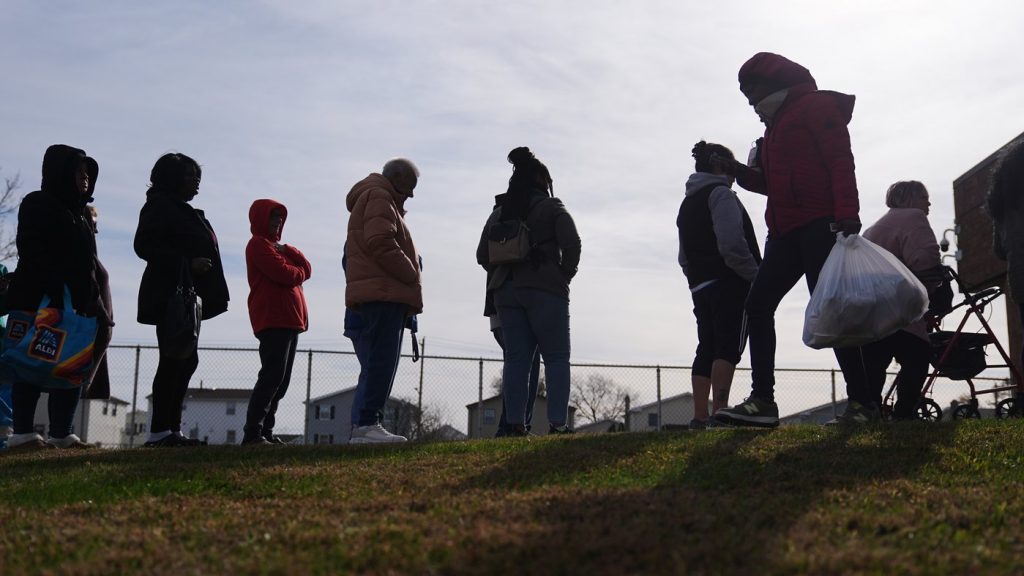BOSTON (AP) – On Friday, the Supreme Court granted an emergency appeal from the Trump administration, temporarily blocking a court order that mandated full funding for SNAP (Supplemental Nutrition Assistance Program) food aid payments during the ongoing government shutdown. Even though some states had already distributed these funds, the administration sought judicial intervention to prevent spending beyond its available contingency fund.
A recent ruling demanded that the administration made the SNAP payments by Friday. However, after the Boston appeals court declined to intervene, Supreme Court Justice Ketanji Brown Jackson issued an order late Friday that paused the requirement for full SNAP distributions until a further ruling from the appeals court. This order from Jackson, which pertains to emergency matters in Massachusetts, is set to remain in effect for 48 hours post the appeals court decision, permitting the administration to return to the Supreme Court if necessary.
The SNAP program provides food assistance to about one in eight Americans, predominantly those with lower incomes. States such as Wisconsin, Oregon, and Hawaii managed to implement full November payments swiftly due to expedient actions taken by their state officials. In Wisconsin, over $104 million in monthly food benefits became accessible for approximately 337,000 households. Oregon officials reported that state employees worked late into the night to ensure families relying on SNAP could buy groceries by Friday. Hawaii was also prepared and quickly submitted the required data for processing.
The Trump administration criticized the rapid distribution of funds by these states, claiming they were attempting to access the limited federal funds available before the appeals court could rule on the matter. Solicitor General D. John Sauer stated that once these billions were issued, recovering those funds would be nearly impossible, emphasizing a need for prudence in managing federal resources.
States like California, New Jersey, and Pennsylvania also issued full SNAP payments, while others planned to initiate distributions over the weekend or by early next week. Some states remained in a holding pattern, awaiting additional federal guidance. This convoluted legal situation has created prolonged uncertainty for many low-income Americans who depend on the SNAP program, as delays in receiving benefits can lead to food insecurity.
Each individual enrolled in SNAP can receive a maximum of nearly $300 per month, with families of four eligible for almost $1,000. However, many recipients actually receive less, as benefits are calculated based on income. For instance, Jasmen Youngbey, a single mother from Newark, New Jersey, shared her experience waiting at a food pantry, highlighting the harsh reality faced by many SNAP participants when benefits are delayed.
The legal battle around SNAP illustrates a significant conflict over responsibilities between the judicial and executive branches of government. Initially, due to the federal government shutdown, the Trump administration had announced that SNAP benefits would not be dispersed in November. However, two judges ruled that the administration could not entirely skip those benefits. The court orders mandated that the government utilize an emergency reserve fund exceeding $4.6 billion to provide for November SNAP allocations.
The judges included U.S. District Judge John J. McConnell Jr., who mandated full payments. However, the Trump administration resisted these orders, contending that it violated the principles of separation of powers by compelling the government to fully fund the meals program. Friday’s court filings reiterated the administration's stance that the existing emergency reserve was not intended to cover the full monthly cost of SNAP benefits.
As states began to find solutions to the funding difficulties, officials in Colorado, Massachusetts, New York, and New Hampshire announced they would be able to provide full benefits by the weekend. Meanwhile, Delaware's governor took initiative, deploying state funds to issue weekly relief payments to SNAP recipients, showcasing an effort to support struggling families amid federal uncertainties.












